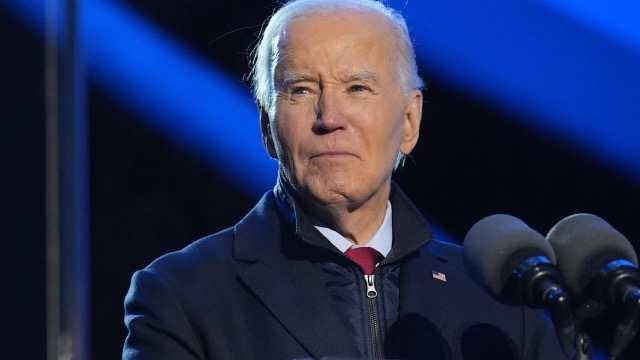President Joe Biden announced Monday a sweeping ban on new offshore oil and gas drilling across U.S. waters, including the Atlantic coast, eastern Gulf of Mexico, Pacific waters, and the Northern Bering Sea. This unilateral move applies to approximately 625 million acres of ocean under federal control.
While the administration touted the decision as an environmental measure to ensure the resilience of U.S. oceans against climate change, critics claim it prioritizes political motives over energy needs. Biden stated, “Drilling off these coasts could cause irreversible damage to places we hold dear and is unnecessary to meet our nation’s energy needs… Now is the time to protect these coasts for our children and grandchildren.”
This decision, made under the 1953 Outer Continental Shelf Lands Act, drew sharp rebukes from Republican leaders, including incoming White House Press Secretary Karoline Leavitt, who called it “a disgraceful decision to exact political revenge on the American people.” She added, “Rest assured, Joe Biden will fail, and we will drill, baby, drill.”
The American Petroleum Institute also condemned the move, emphasizing the potential $8 billion in government revenue by 2040 that robust offshore energy development could generate. API President Mike Sommers noted, “The incoming administration should fully leverage the nation’s vast offshore resources for affordable energy and stability worldwide.”
The U.S. Energy Information Administration reported that offshore wells provided 14.5% of U.S. crude oil production in 2022, highlighting the strategic importance of these resources.
This ban marks the latest in Biden’s controversial final actions in office, which have included:
• Authorizing long-range missile use in Ukraine, risking escalation with Russia.
• Issuing a blanket pardon for his son Hunter Biden and other convicts.
• Advancing DEI-aligned judicial appointments while vetoing bipartisan judicial expansion.
• Bestowing high civilian honors on figures like George Soros and Hillary Clinton.
• Imposing aggressive greenhouse gas emission targets.
• Instituting measures to “Trump-proof” federal agencies.
With President-elect Donald Trump taking office, overturning the offshore drilling ban may require Congressional intervention to reverse this dramatic 11th-hour decision.
 Telegram is where we really talk. Don't miss out!
Telegram is where we really talk. Don't miss out!






